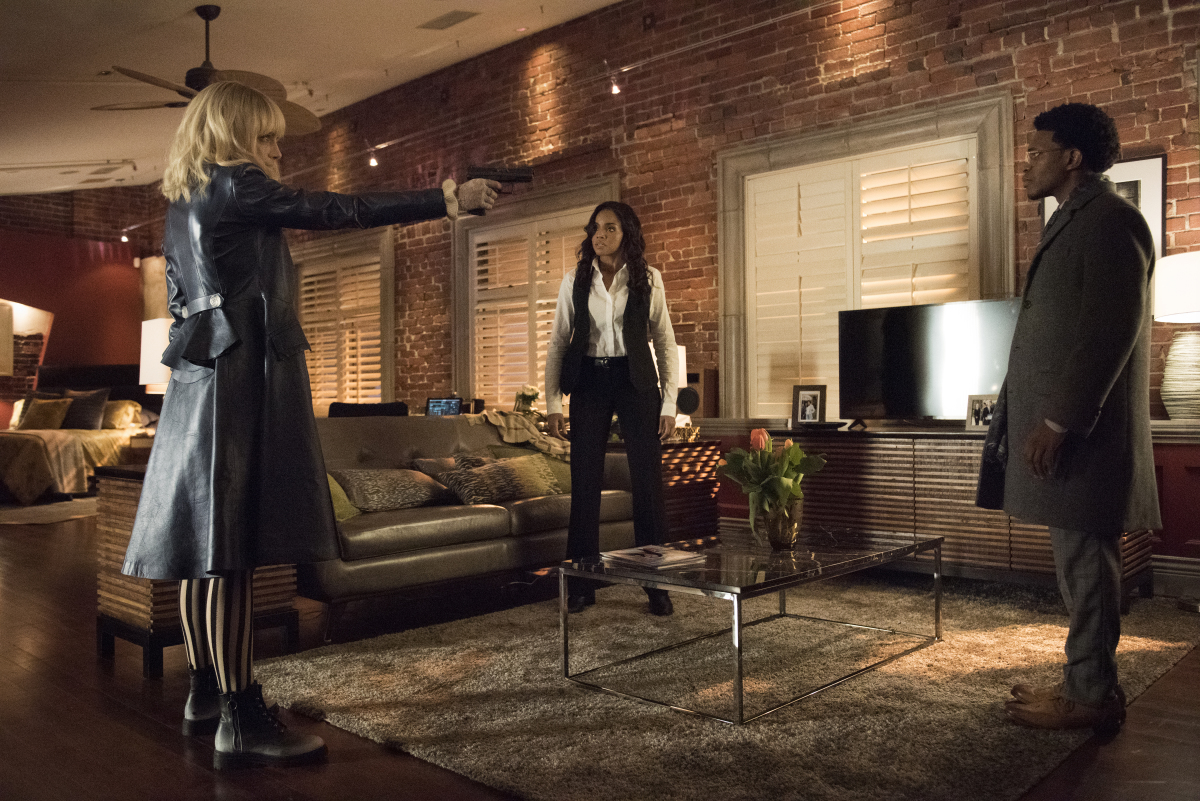This Batwoman review contains spoilers.
Batwoman Season 2, Episode 4
Batwoman is using its new protagonist to tell stories that matter about the people superheroes (and superhero shows) forget. It is also, simultaneously, trying to keep the audience invested in characters whose stories have run their course. Kate Kane might not be dead, but she should be. After Alice’s and Sophie’s visit with Safiyah where she revealed that Kate is alive, the search for her is in full force. Mary is hesitant to have hope because she’s already accepted the finality of Kate’s death. Luke, on the other hand, has never conceded, and takes Safiyah’s word at face value.
Alice and Sophie are tasked with finding a man named Ocean for Safiyah, in exchange for Kate’s safe return. And while it makes sense for both of them to want Kate back, each for their own reasons, it also feels like an easy—cheap—way to keep them connected to the central story. Instead of giving Alice and Sophie (and Julia) new things to do, Batwoman is keeping Kate in play, and continuing to make their motivations about her. Sophie is a newly out lesbian and a Black, female cop. She really does not need to also have unrequited feelings for Kate and guilt about their past relationship to be interesting. Her reality sans Kate is full of potential. Similarly, Alice has a whole entire father she can shift all of that unhinged vengeful energy to. Kate being present, even without being on-screen, is the only real issue I have with the season so far. Let people let go of Kate.
I admit that my expectations for this new iteration of the hero of Gotham were… low. Casting a Black, queer woman in the titular role was an exciting choice but it didn’t necessarily signal any real intention to tell more meaningful stories. Surprisingly though, writers have embraced the challenge of writing for the character in specific and significant ways. Ryan is the product of an environment that we have only seen in this show, and in most superhero fare, as a backdrop for the heroics. The characterization of Ryan as someone who survived that environment was something I hoped the show would both lean into and not rest on. Batwoman is confidently navigating that very narrow path.
Ryan was raised in foster care and spent time in the carceral system in adolescence and as an adult. She is a survivor, and all of the victimization she has endured informs the choices she makes as a person now with the power to protect people. When a young boy triggers a store alarm to get Batwoman’s attention, he asks her to find his brother Kevin, who has been missing for weeks. When she looks into his disappearance, the circumstances mirror an experience from her past, where she was abducted and nobody came to look for her.
Ryan’s investigation into Kevin unlocks her own memories of the time she spent with the “nice neighborhood candy lady,” a white woman who abducts young people and sells them off to gangs after they’ve been spiritually broken. Ryan flashes back to a moment in captivity where she thought she’d be saved after a search party arrives at the house. Only to find that they were looking for a girl with “fair skin, blue eyes,” and not her. That search for Beth Kane was extensive, just as the search for Kate is now that there is a modicum of a chance that she survived the plane crash. The time and resources spent to find these white girls and women are juxtaposed against Ryan and Kevin, both missing, and neither sought. This highlights a real-world issue.
Luckily for Ryan, her friend Angelique (Kerensa Cooper) allows herself to get snatched by the Candy Lady, and she and Ryan escape together—without the help of any adult or authority figures. In the present, Ryan is too late to save Kevin from the Candy Lady before he’s sold off to a gang. But Ryan gets to him before he can be initiated into the False Faces by taking Jacob Kane’s life. Batwoman saves Jacob and Kevin, and when Jacob asks how she found Kevin, she says “easy, I Iooked.” And there it is. Ryan has been forgotten, she knows what that feels like. But she also knows what it feels like to be found. She understands what the people of Gotham who are just trying to survive need in a hero, and she’s becoming that for Gotham and for herself. She also reconnects with Angelique (Bevin Bru), someone who had her back, which is necessary in the vigilante life.
Batwoman is asking new questions with its storytelling and avoiding easy, palatable answers. A masked Black woman vigilante can’t change a system, but who she chooses to save and how she uses her power can spark conversation about the ways the system fails the citizens of Gotham and why Batwoman, or even the Crows, are needed. This is the kind of existential question I have while watching, and the kind of dilemmas I want the show to examine, especially when the show operates in such a morally gray area. We can have fun with costumed heroes and also interrogate the power structures that necessitate their existence.
Black Lightning is a Black AF show that is topical by virtue of the fact that it tries to honestly reflect the Black experience. Because it’s so relevant it is also, sometimes, a difficult watch. Batwoman is wading into these conversations with Ryan, and allowing her identity to drive her heroism. But there’s enough wackiness afoot in Gotham that Batwoman still feels like escapism. I enjoy the balance of realism and fantasy that the writers are maintaining this season and look forward to more elevated storytelling and a focus shift away from Kate Kane.
